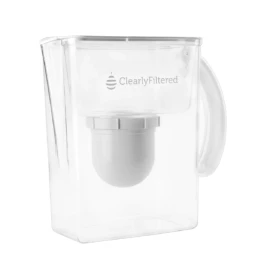Quercetin is a flavonoid, a group of plant pigments that have been found to have various health benefits. This natural compound is commonly found in fruits and vegetables such as apples, grapes, onions, berries, and leafy green vegetables. One of the many health benefits of quercetin is its positive effect on kidney function. In this blog, we will discuss the benefits of quercetin to the kidneys.
The benefits of quercetin to the kidneys
By Majd Isreb, MD, FACP, FASN, IFMCP
Anti-inflammatory properties
Quercetin has been found to possess anti-inflammatory properties. Inflammation is a common cause of kidney damage and can lead to chronic kidney disease. Quercetin can reduce inflammation in the kidneys, which may help to prevent or slow down the progression of kidney disease.
Antioxidant properties
Quercetin also has antioxidant properties. Antioxidants are important because they help to neutralize harmful free radicals in the body that can cause damage to cells and tissues. Free radicals can damage the kidneys, leading to kidney disease. By neutralizing these free radicals, quercetin helps to protect the kidneys from damage.
Join us to end the kidney disease epidemic and receive the FREE Report “5 Pitfalls to Avoid When Caring for Kidney Patients”
Blood pressure regulation
High blood pressure is a leading cause of kidney disease. Quercetin has been found to have blood pressure-lowering effects. By reducing blood pressure, quercetin can help to prevent kidney damage and slow down the progression of kidney disease.
Reduced proteinuria
Proteinuria is a condition where protein is present in the urine. This can be a sign of kidney damage or disease. Quercetin has been found to reduce proteinuria, which may indicate that it is helpful in protecting the kidneys from damage.
The role of genetics
Genetic variants can affect the metabolism of quercetin by influencing the expression and activity of enzymes involved in its biotransformation. For example, genetic variations in the SULT1A1 and SULT1E1 genes affect the metabolism of quercetin and its metabolite. Studies found that certain genetic variants were associated with altered levels of quercetin and its metabolites in the blood.
COMT (catechol-O-methyltransferase) is an enzyme involved in the metabolism of catecholamines, including dopamine, epinephrine, and norepinephrine. Variants in the COMT gene can affect the activity of the enzyme and, consequently, the metabolism of catecholamines.
One common variant in the COMT gene is the Val158Met polymorphism, which involves a substitution of valine (Val) for methionine (Met) at position 158 of the enzyme. The Val158Met polymorphism has been extensively studied and is associated with altered enzyme activity, with the Val variant associated with higher activity and the Met variant associated with lower activity.
There is evidence suggesting that the Val158Met polymorphism may also affect the metabolism of flavonoids, including quercetin. Individuals with the Val/Val genotype have more active COMT enzyme. Therefore, those with Met/Met genotype should probably be cautious or avoid using quercetin. Those patients will also likely to experience anxiety with quercetin, especially at high doses.
What dose of quercetin should you use?
The recommended dose of quercetin depends on the reason for use, age, sex, and other individual factors. Since quercetin is considered a dietary supplement, there is no standard recommended dose established by the FDA.
However, some studies have used doses ranging from 500 to 1000 mg per day for various health conditions. For example, a study published in the International Journal of Sports Nutrition and Exercise Metabolism used a dose of 1000 mg per day of quercetin supplementation to improve athletic performance in trained cyclists.
A meta-analysis published in the Journal of the American Heart Association found that a dose of 500 mg or more per day of quercetin supplementation improved blood pressure.
It is important to note that high doses of quercetin supplements can cause side effects such as headaches, gastrointestinal discomfort, and kidney damage, especially in those with advanced kidney disease. Quercetin also interacts with a lot of medications.
Therefore, it is recommended to consult a healthcare professional before starting to take quercetin supplements and to follow the dosage instructions on the supplement label.
The use of quercetin in advanced kidney disease
While quercetin has many benefits, as mentioned above, there is limited research on the use of quercetin in advanced kidney disease. The available studies suggest that caution should be taken when considering its use in this population. We recommend avoiding using quercetin for patients with eGFR of less than 30 ml/min.
The bottom line
Quercetin is a natural compound that has numerous health benefits, including its positive effect on kidney function. Quercetin has anti-inflammatory and antioxidant properties, can help to regulate blood pressure, and reduce proteinuria. These benefits make quercetin a promising natural remedy for protecting and maintaining kidney health. However, it is important to consult with a healthcare provider before taking quercetin supplements or making any changes to your diet or medication regimen.





